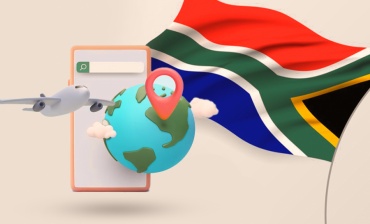South Africa, a striking land of diversity and boundless opportunities, beckons immigrants to its shores. In this article, we will navigate the intricate faces of life as an immigrant in the rainbow nation.
Housing and the Cost of Living
As of my last data update in 2021, securing a one-bedroom apartment in the heart of Johannesburg will set you back approximately $500 to $700 per month. In more peripheral areas, the monthly cost drops to around $400 to $550. Nevertheless, remember that housing expenses fluctuate significantly depending on your chosen city and specific neighborhood. South Africa’s cost of living, while reasonable by Western standards, may witness variations, particularly for imported goods.
Taxation
South Africa’s tax system is progressive. Resident individuals are subject to taxation on their global income, with rates spanning from 18% for income up to R205,900 to 45% for income surpassing R1,577,300. Additionally, a 15% Value Added Tax (VAT) is applied to goods and services.
Job and Business Opportunities
Despite grappling with economic challenges, South Africa unfolds opportunities across sectors like finance, mining, tourism, and information technology. Johannesburg takes the lead as the nation’s financial epicenter, while Cape Town shines as a burgeoning hub for technology and tourism. The government has also rolled out initiatives to nurture small and medium-sized enterprises.
Quality of Life
South Africa offers a tapestry of awe-inspiring landscapes, from pristine beaches to towering mountains and thrilling safaris. Urban centers pamper residents with modern amenities and a thriving cultural and nightlife scene. Nevertheless, an essential note of caution pertains to certain areas facing security concerns; Thus, thorough research is imperative.
Social Support and Education
South Africa hosts a spectrum of local and international educational institutions. Public schools place a strong emphasis on bilingual education, rendering a unique experience for students. Immigrant communities, predominantly thriving in major cities, have established diverse networking groups and associations to aid newcomers in their journey.
Healthcare
South Africa extends a comprehensive healthcare infrastructure, covering both public and private facilities. While the public healthcare system is extensive, expatriates often favor private hospitals owing to superior resources and shorter waiting times. To secure your health needs, it is highly recommended to invest in health insurance.
Legal and Administrative Considerations: Immigration Process
The immigrant’s path to South Africa typically necessitates a residence permit, categorized according to the purpose of your stay, be it work or study. A general work visa mandates an employment contract with a South African company, while critical skills visas are designed for professionals considered to be in short supply within South Africa.
Cultural and Language Differences
The kaleidoscope of South Africa’s cultural mosaic manifests through its 11 official languages ??and a rich blend of traditions. English, a lingua franca in business and urban settings, mingles harmoniously with languages ??like Zulu, Xhosa, and Afrikaans. Delving into the historical context and cultural nuances of the nation can elevate your immigrant experience in South Africa to new heights.
Author: Pooyan Ghamari, Swiss Economist & Visionary







